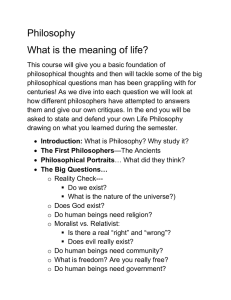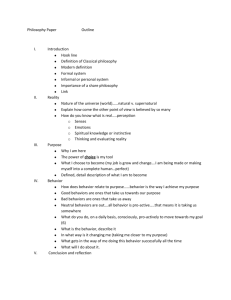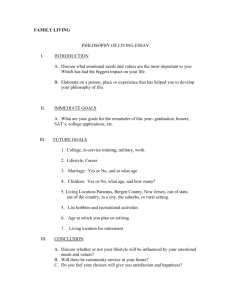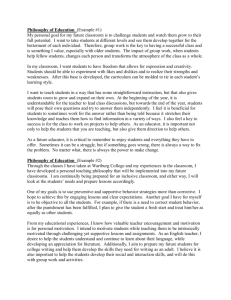Philosophy for Adult Education
advertisement
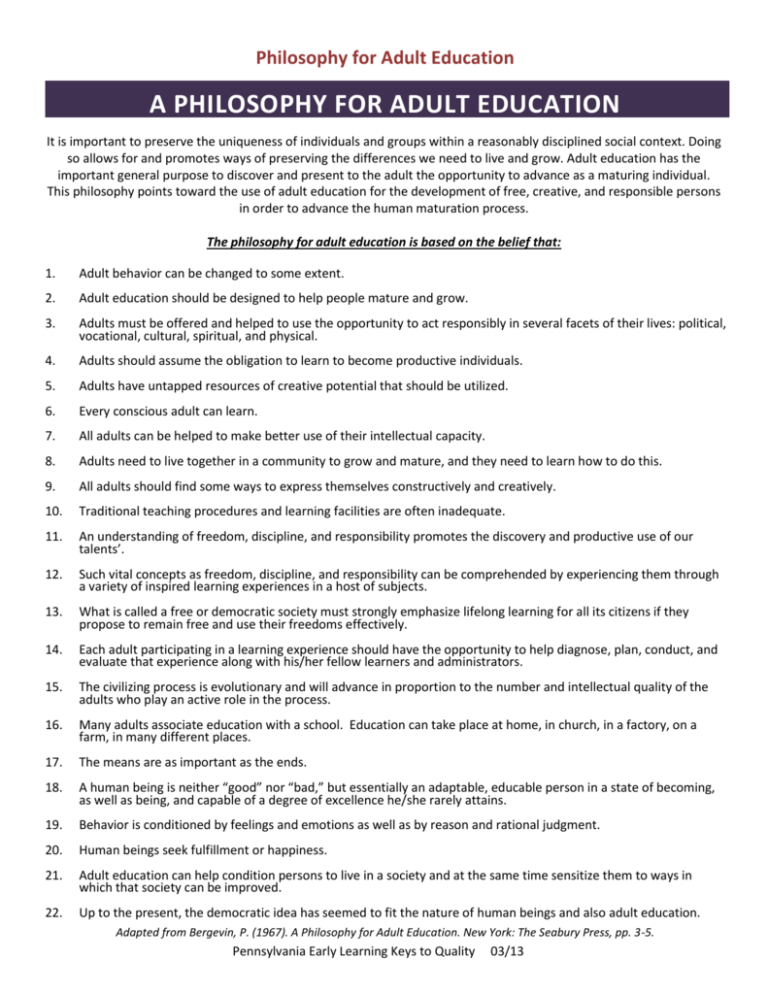
Philosophy for Adult Education A PHILOSOPHY FOR ADULT EDUCATION It is important to preserve the uniqueness of individuals and groups within a reasonably disciplined social context. Doing so allows for and promotes ways of preserving the differences we need to live and grow. Adult education has the important general purpose to discover and present to the adult the opportunity to advance as a maturing individual. This philosophy points toward the use of adult education for the development of free, creative, and responsible persons in order to advance the human maturation process. The philosophy for adult education is based on the belief that: 1. Adult behavior can be changed to some extent. 2. Adult education should be designed to help people mature and grow. 3. Adults must be offered and helped to use the opportunity to act responsibly in several facets of their lives: political, vocational, cultural, spiritual, and physical. 4. Adults should assume the obligation to learn to become productive individuals. 5. Adults have untapped resources of creative potential that should be utilized. 6. Every conscious adult can learn. 7. All adults can be helped to make better use of their intellectual capacity. 8. Adults need to live together in a community to grow and mature, and they need to learn how to do this. 9. All adults should find some ways to express themselves constructively and creatively. 10. Traditional teaching procedures and learning facilities are often inadequate. 11. An understanding of freedom, discipline, and responsibility promotes the discovery and productive use of our talents’. 12. Such vital concepts as freedom, discipline, and responsibility can be comprehended by experiencing them through a variety of inspired learning experiences in a host of subjects. 13. What is called a free or democratic society must strongly emphasize lifelong learning for all its citizens if they propose to remain free and use their freedoms effectively. 14. Each adult participating in a learning experience should have the opportunity to help diagnose, plan, conduct, and evaluate that experience along with his/her fellow learners and administrators. 15. The civilizing process is evolutionary and will advance in proportion to the number and intellectual quality of the adults who play an active role in the process. 16. Many adults associate education with a school. Education can take place at home, in church, in a factory, on a farm, in many different places. 17. The means are as important as the ends. 18. A human being is neither “good” nor “bad,” but essentially an adaptable, educable person in a state of becoming, as well as being, and capable of a degree of excellence he/she rarely attains. 19. Behavior is conditioned by feelings and emotions as well as by reason and rational judgment. 20. Human beings seek fulfillment or happiness. 21. Adult education can help condition persons to live in a society and at the same time sensitize them to ways in which that society can be improved. 22. Up to the present, the democratic idea has seemed to fit the nature of human beings and also adult education. Adapted from Bergevin, P. (1967). A Philosophy for Adult Education. New York: The Seabury Press, pp. 3-5. Pennsylvania Early Learning Keys to Quality 03/13

